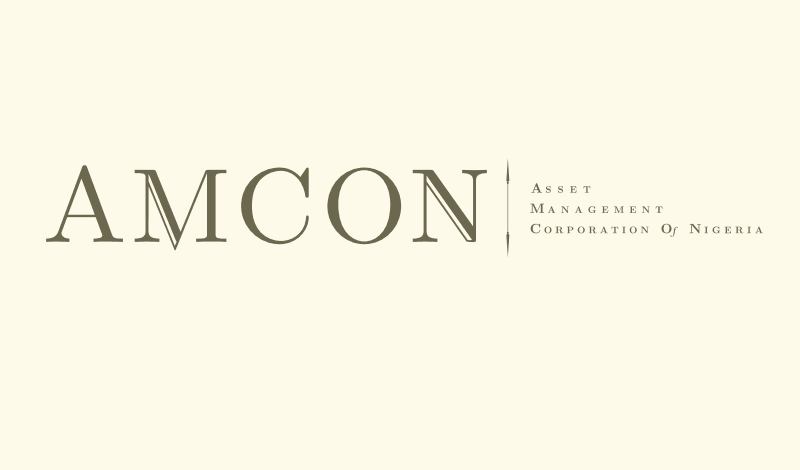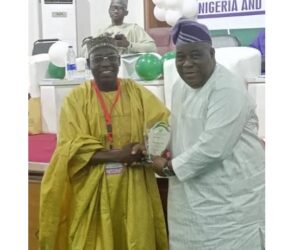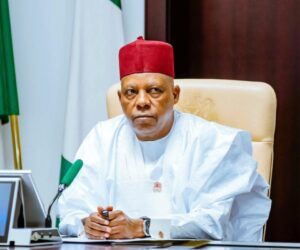General Hydrocarbons on Thursday described the Asset Management Corporation of Nigeria (AMCON)’s appointment of a receiver to take over the company as an “unlawful attempt.”
The oil servicing company, which is majority-owned and controlled by Nduka Obaigbena, the chairman and editor-in-chief of THIS DAY newspaper and ARISE Media Group, said the agency enforced the receivership despite a subsisting court order issued by Justice Lewis Allagoa in Suit No: FHC/L/CS/1903/2025 on 23 September 2025.
General Hydrocarbons made the disclosure in a statement on Thursday, stating that it expects institutions and government agencies to abide by court orders and govern Nigeria based on the rule of law.
It also noted that institutions and government agencies should not allow themselves to be used “as willing tools in the hands of private companies to oppress and intimidate innocent citizens, corporate or individual.”
The company’s statement followed the announcement on Thursday by Oluseyi Akinwunmi, the receiver/manager, that he had been appointed by a deed and notice of appointment, both dated 18 September 2025, duly registered under the provisions of the Companies and Allied Matters Act 2020.
“At the time AMCON appointed me receiver manager, there was no order against me. I was appointed under the law, and I am operating according to law,” Mr Akinwunmi told PREMIUM TIMES.
In an advertisement published in the Leadership newspaper on Thursday, the receiver/manager directed all the debtors of the company to pay all their debts directly to the receiver and all the creditors to send their proof of claims alongside an affidavit verifying the debt to the receiver within thirty days of the date of the publication.
Also, it stated that all cash, deposits and other assets currently held by banks and other financial institutions should be held pending further instructions from the receiver.
In its response, General Hydrocarbons cited a section of the court papers in which Justice Allagoa issued the restraining order as follows: “that an order of interim injunction is granted restraining the defendants (AMCON, MD of AMCON, FBN & AGF) either by themselves or acting through their servants, agents, assigns, privies, affiliates, howsoever described including any person claiming under their authority from taking any steps or continuing with any steps whatsoever to enforce any rights against the Applicant (GHL) or its assets, including but not limited to freezing the accounts of the Applicants, its directors, shareholders, the appointment of a Receiver/Receiver Manager, Asset Manager, Recovery Agent, etc, over the Applicants (GHL), the Applicant’s assets, or assets belonging the Applicant’s Directors or Shareholders on the basis of assets loan purchase and Limited Service Agreement, the Outstanding Exposure Tripartite deed, the Intercreditor and Security Sharing Agreement, or any other agreement related to the 1st Defendant’s (AMCON’s) purchase of the 3rd Defendant’s (FBN’s) Non-Performing Loan (the Atlantic Energy’s loan) against the applicant pending the hearing and determination of the Motion on Notice in this suit.”
General Hydrocarbons asserted that it would strongly resist the move to take over its assets, saying it had moved to set aside the “inconsistent arbitration award” at the Federal High Court.
“GHL, along with all the relevant parties, are returning to Justice Allagoa’s court on the 11th of November 2025, where GHL will report this material non-disclosure and flagrant abuse of, and disobedience to, Justice Lewis Allagoa’s orders.”
On 28 October 2025, an arbitral tribunal ordered General Hydrocarbons to pay First Bank of Nigeria $112,100 and N111.25 million in legal and arbitration costs.
Justice Akaah Kumai, who gave the ruling, said failure by General Hydrocarbons to do so will attract a 10 per cent annual interest rate until full settlement.
The legal battle resulted from a subrogation agreement dated 29 May 2021 under which General Hydrocarbons undertook to clear an outstanding debt of $718 million incurred by Atlantic Energy to First Bank, a debt later purchased by AMCON as an eligible bank asset.
First Bank, on its part, undertook to provide extra credit to finance the development and production of OML 120 per the terms of the agreement.
The lender claimed that General Hydrocarbons defaulted on its repayment obligation, forcing it to seek arbitration after various attempts at recovery failed.
General Hydrocarbons, however, alleged that the bank violated the provisions of the agreement by refusing to make available absolute and timely financing, sabotaging alternative funding efforts, and causing losses including liabilities to third party and resulting in loss of productive time in the development of OML 120.
According to the lender, the bank’s financing obligation was conditional and not absolute but subject to review and professional discretion in accordance with banking policies and regulatory stipulations.
The arbitral tribunal maintained that First Bank’s obligation to fund OML 120 development is conditional, and not absolute.
It established that General Hydrocarbons did not make a compelling argument to show that First Bank committed any breach.
It said that the introduction of AMCON as a financing option by First Bank aligned with the agreement and is not a breach.
READ ALSO: AMCON puts General Hydrocarbons under receivership amid court orders
The tribunal threw out the allegation that First Bank sabotaged alternative financing arrangements on the ground that the claim lacked merit.
It refused all the reliefs sought by General Hydrocarbons, including damage for unpaid contractor fees, losses and termination of the subrogation agreement.
“GHL is not indebted directly or indirectly to AMCON in any way, shape or form, and GHL does not have any non-performing loans with FBN, AMCON or indeed with any other bank or financial institution,” the company noted in the Thursday statement.









